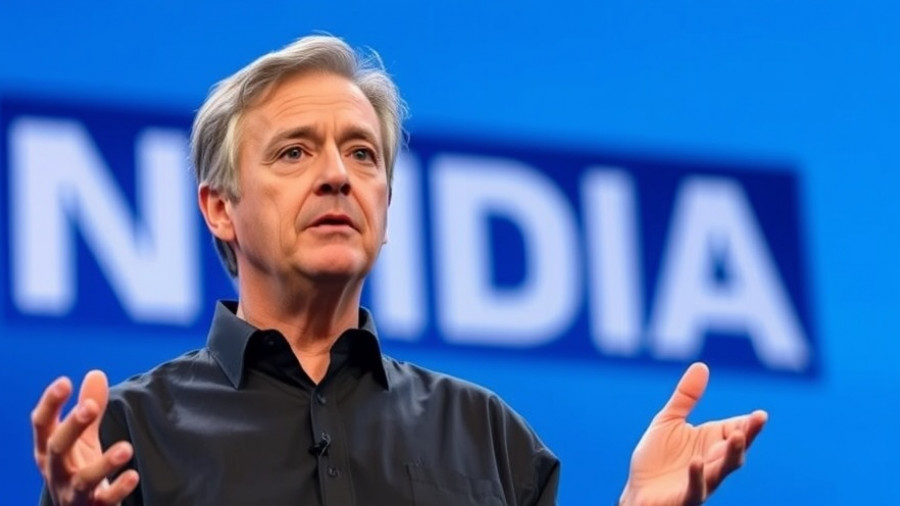
Understanding the Shift: Nvidia's Market Fallout in China
In a striking declaration, Nvidia CEO Jensen Huang stated that his company’s share in China's AI market plummeted from an impressive 95% to a stark 0%. This dramatic drop underscores the impact of U.S. export restrictions that have reshaped the landscape of tech trade between the United States and China. These policies, aimed at curtailing China’s access to advanced technology, have inadvertently sidelined one of the world's strongest semiconductor players.
The Ripple Effect of Policies on Global Tech Trade
Huang's remarks highlight a critical issue: the interconnectedness of global markets. As he put it, "I can’t imagine any policymaker thinking that that’s a good idea." His concern extends beyond business profits to the broader implications of tech isolationism, suggesting that while barriers are meant to contain rivals, they can also hurt the U.S. economy and innovation landscape. The ban on Nvidia’s cutting-edge chips, notably since the 2022 export restrictions, has stymied not just Nvidia's sales but has also left a significant void in the AI ecosystem across both nations.
The Importance of China in the AI Ecosystem
China, home to roughly half of the world's AI researchers, is a pivotal player in the technological arena. Huang mentioned that losing this market is not merely detrimental to Nvidia but risks diminishing America’s technological leadership as well. As the U.S. attempts to curb China's technological advancements by stifling access to key resources, Huang argues for the necessity of collaboration. "I think it’s a mistake for the United States to not participate," he remarked, hinting at potential missed opportunities for innovation and market growth.
The Future of AI and the Semiconductor Market
Looking ahead, Huang's forecasts are sobering; they assume that Nvidia will remain out of the Chinese market indefinitely. He expressed hope for a policy shift that might allow Nvidia to re-enter this lucrative arena, indicating that any movement in Beijing toward easing sanctions would serve as a welcome surprise for the company. With forecasts tuned to zero revenue from China, Huang's optimism seems cautious but necessary. A robust U.S. presence in China may enable competitive advancements and foster a more comprehensive global AI development narrative.
Accommodating Diverse Perspectives: What Can Be Done?
While Huang advocates for a more nuanced approach, it’s vital to recognize diverse perspectives in this dialogue. Policymakers must weigh national security concerns against the potential stifling of innovation when tech companies like Nvidia are cut off from critical markets. The reality is that both American and Chinese tech communities stand to lose if isolation continues. As tensions between both countries remain high, finding a middle ground may involve difficult negotiations and a rethinking of trade policies.
Conclusion: Moving Forward in a Complex Landscape
As we navigate these turbulent waters, it’s clear that Huang's concerns are not merely about Nvidia’s market share—they reflect larger themes of globalization, the future of tech, and the delicate balance required in international relations. For AI enthusiasts and tech investors, understanding these dynamics offers insight into the future of innovation and where strategic decisions might lead. Keep an eye on developments in U.S.-China relations, as they will likely continue to influence the trajectory of AI and technology for years to come.
 Add Row
Add Row  Add
Add 




Write A Comment